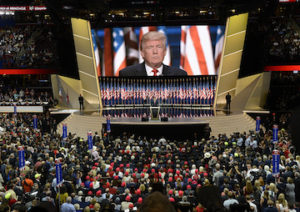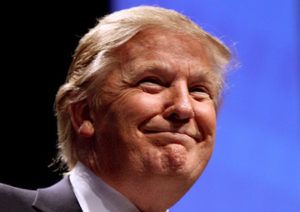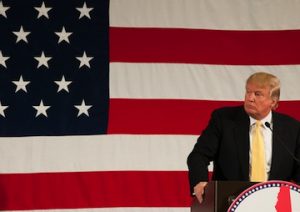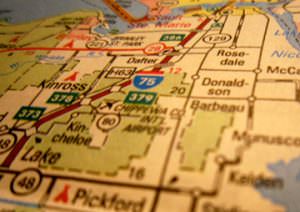A Bumpy Detour
Romney's "religion speech" was touched by brilliance, but it turned off onto a wrong road. Parts of it were frustrating and transparently political, the words of a man with his eye on a prize.WASHINGTON — It’s not easy being a politician from a minority faith, especially when it comes to explaining your own traditions — sometimes even to yourself.
Al Smith, the first Catholic to be nominated for president by a major party, found his faith under vicious attack in the 1928 campaign. Called upon to answer for the content of various papal encyclicals — documents issued by the pope in Rome — the New York Democrat turned to his aides in frustration one day with a plea: “Will someone tell me what the hell a papal encyclical is?”
Mitt Romney, in his remarkable speech Thursday on religious liberty, wisely chose not to present a theological treatise or offer an exegesis of the Book of Mormon. Instead, he challenged Americans to live up to the demands of pluralism rooted in liberty. “Religious tolerance,” he asserted, rightly, “would be a shallow principle indeed if it were reserved only for faiths with which we agree.”
Romney’s speech at the George H.W. Bush Library in Texas was by turns brilliant and frustrating, inspiring yet also transparently political in its effort to find the precise balance that would satisfy Republican primary voters.
When he spoke of the dangers of subjecting candidates to doctrinal investigations, Romney had perfect pitch. His opponents — particularly Mike Huckabee, a Baptist minister who is reaping a great harvest of evangelical Christian support in Iowa — should join him in warning against religious bigotry.
“There are some who would have a presidential candidate describe and explain his church’s distinctive doctrines,” Romney said. “To do so would enable the very religious test the founders prohibited in the Constitution. No candidate should become the spokesman for his faith. For if he becomes president, he will need the prayers of the people of all faiths.”
There was also his poetic assertion that “we do not insist on a single strain of religion — rather, we welcome our nation’s symphony of faith.”
But in light of all this, it was a neck-snapping moment when Romney declared: “What do I believe about Jesus Christ? I believe that Jesus Christ is the Son of God and the Savior of mankind.”
With those words, Romney legitimized the most fundamental test being imposed upon him in some evangelical Christian quarters. He was telling them he deserved an A on the religious exam they cared about most. He has every right to declare his faith in Jesus, but didn’t his profession, in this context, undercut his central and proper contention that a candidate should not be asked to “describe and explain his church’s distinctive doctrines”?
I share Romney’s view that “liberty is a gift of God, not an indulgence of government,” and believe, against the view of some of my more militantly atheist friends, that the Jewish and Christian traditions point us toward freedom and equality.
Romney was also right that “every single human being is a child of God.” This is at the root of the belief system of many liberals who are also religious. Romney was echoing — unconsciously to be sure — none other than Bill Clinton, who declared in a 1992 campaign speech at Notre Dame that “all of us must respect the reflection of God’s image in every man and woman.”
But then Romney had to go further. “Freedom,” he said, “requires religion just as religion requires freedom.” And to those who see religion as “merely a private affair with no place in public life,” he had this to say: “It is as if they are intent on establishing a new religion in America — the religion of secularism. They are wrong.”
Well. Religion can certainly be conducive to freedom. But does freedom require religion? Is religion always conducive to freedom? Does freedom not also thrive in far more secular societies than our own? Isn’t the better course for our nation to seek solidarity among lovers of liberty, secular as well as religious? After all, it was a coalition of believers and secularists, as the Princeton scholar Jeffrey Stout has noted, that sent a communist dictatorship tumbling down in Pope John Paul II’s native Poland.
And Romney’s knock on the “religion of secularism” was pure pandering to the religious right.
I hope Romney’s eloquence about “our grand tradition of religious tolerance and liberty” persuades voters who need convincing that it would be terribly divisive if his Mormonism were a factor in how he fares in the primaries. I wish he had felt less need to water down his boldness with politically convenient assertions that would also divide us, just in different ways.
E.J. Dionne’s e-mail address is postchat(at)aol.com.
© 2007, Washington Post Writers Group
Your support matters…Independent journalism is under threat and overshadowed by heavily funded mainstream media.
You can help level the playing field. Become a member.
Your tax-deductible contribution keeps us digging beneath the headlines to give you thought-provoking, investigative reporting and analysis that unearths what's really happening- without compromise.
Give today to support our courageous, independent journalists.









You need to be a supporter to comment.
There are currently no responses to this article.
Be the first to respond.